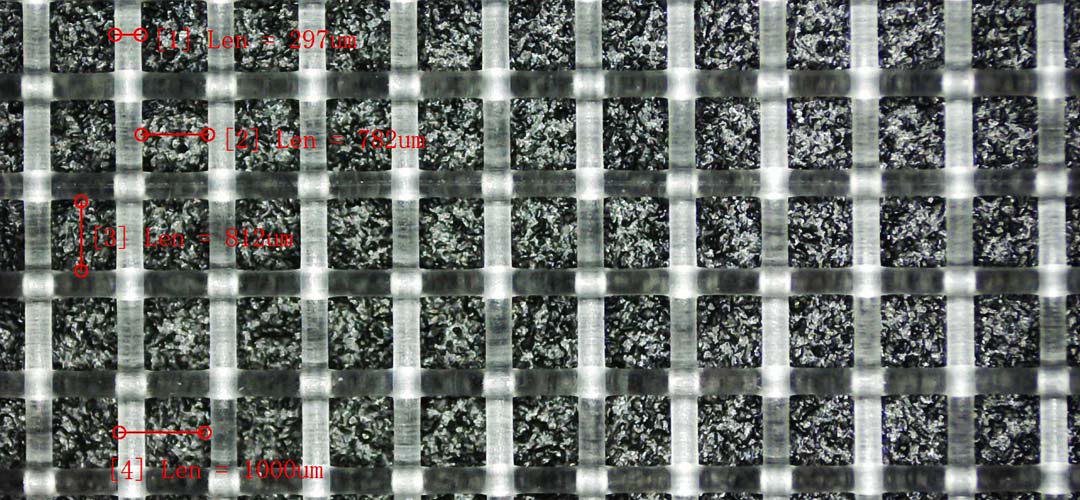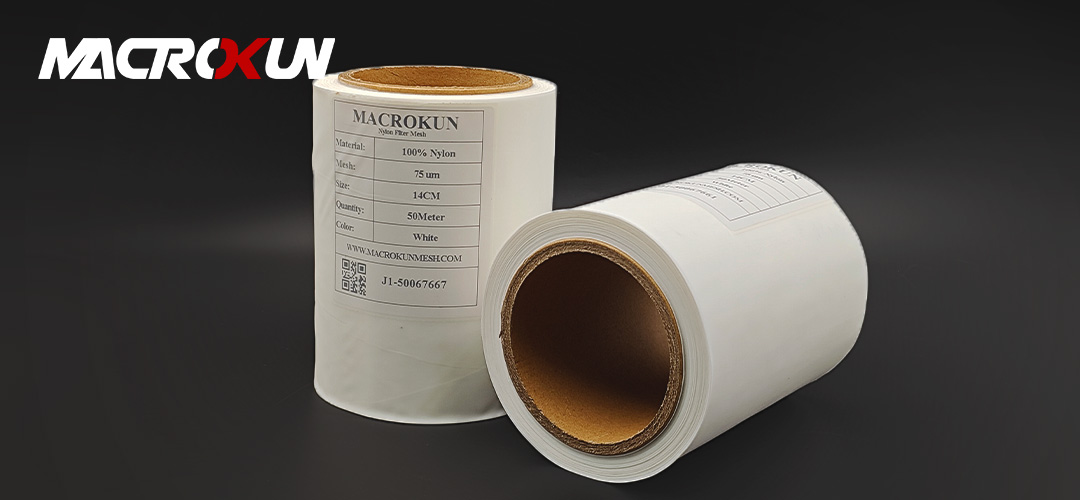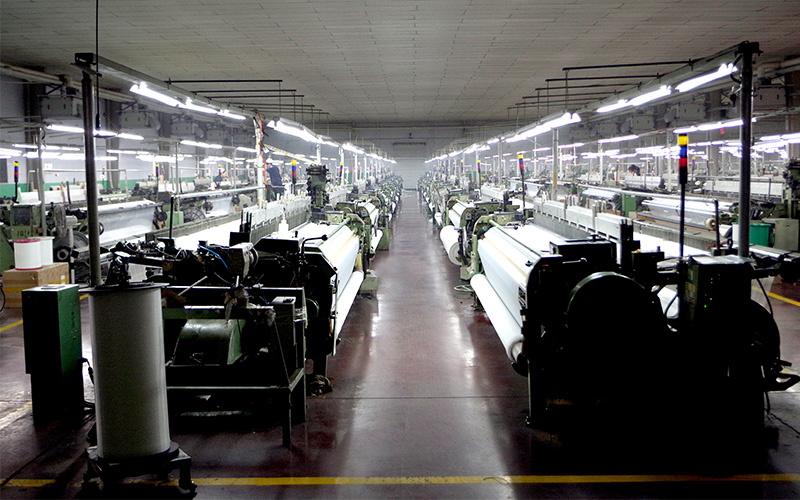300 micron nylon mesh is a versatile material that is commonly used for coarse filtration and liquid separation in various industries. Its unique properties make it an optimal choice for applications where larger particles need to be removed from a liquid stream. In this article, we will explore the benefits of using 300 micron nylon mesh for coarse filtration and liquid separation.
One of the key advantages of 300 micron nylon mesh is its durability. Nylon is a strong and resilient material that can withstand high pressures and temperatures, making it ideal for use in industrial filtration systems. This durability ensures that the mesh will not break or tear easily, even when subjected to harsh operating conditions.
In addition to its strength, 300 micron nylon mesh is also highly resistant to chemicals and corrosion. This makes it suitable for filtering a wide range of liquids, including those that are acidic, alkaline, or corrosive in nature. The mesh will not degrade or deteriorate when exposed to these substances, ensuring that it maintains its filtration efficiency over time.
Another benefit of using 300 micron nylon mesh for coarse filtration is its high flow rate. The open weave structure of the mesh allows liquids to pass through quickly, while trapping larger particles on the surface. This results in efficient filtration and separation, with minimal pressure drop across the mesh. As a result, the mesh can handle high flow rates without compromising its performance.

Furthermore, 300 micron nylon mesh is easy to clean and maintain. Unlike some other types of filtration media, nylon mesh can be easily rinsed or washed to remove trapped particles and debris. This makes it a cost-effective option for applications where frequent cleaning is required, as the mesh can be reused multiple times without losing its effectiveness.

Additionally, 300 micron nylon mesh is available in a range of sizes and configurations to suit different filtration requirements. Whether you need a small piece of mesh for a laboratory experiment or a large roll for an industrial filtration system, there is a nylon mesh product that will meet your needs. This versatility makes nylon mesh a popular choice for a wide range of applications, from food and beverage processing to wastewater treatment.
In conclusion, 300 micron nylon mesh is an optimal choice for coarse filtration and liquid separation due to its durability, chemical resistance, high flow rate, ease of maintenance, and versatility. Whether you are filtering water, chemicals, or other liquids, nylon mesh can provide efficient and reliable filtration performance. Consider using 300 micron nylon mesh for your next filtration application to experience the benefits firsthand.
300 micron nylon mesh is a versatile material that finds numerous applications in liquid separation processes. Its ability to efficiently filter out particles and impurities makes it an ideal choice for coarse filtration in various industries. From food and beverage production to pharmaceuticals and wastewater treatment, 300 micron nylon mesh plays a crucial role in ensuring the quality and purity of liquids.
One of the key advantages of using 300 micron nylon mesh for liquid separation is its durability and strength. The mesh is made from high-quality nylon fibers that are woven together to create a sturdy and resilient material. This allows the mesh to withstand high pressures and temperatures without losing its filtration efficiency. As a result, it can be used in demanding industrial environments where other materials may fail.
In addition to its durability, 300 micron nylon mesh offers excellent filtration performance. The mesh is designed to trap particles larger than 300 microns, effectively removing impurities from liquids. This makes it an ideal choice for applications where coarse filtration is required, such as removing debris from wastewater or separating solids from liquids in food processing.
Furthermore, 300 micron nylon mesh is highly versatile and can be customized to meet specific filtration requirements. It is available in a range of mesh sizes, allowing users to choose the optimal mesh size for their application. Whether filtering out large particles or separating fine solids from liquids, 300 micron nylon mesh can be tailored to deliver the desired level of filtration.
Another key benefit of using 300 micron nylon mesh for liquid separation is its ease of maintenance. The mesh can be easily cleaned and reused multiple times, reducing the need for frequent replacements. This not only saves time and money but also minimizes waste and environmental impact.
Moreover, 300 micron nylon mesh is chemically resistant, making it suitable for a wide range of liquids. Whether filtering water, oils, or chemicals, the mesh can withstand exposure to different substances without degrading or losing its filtration efficiency. This makes it a reliable choice for diverse liquid separation applications.
In conclusion, 300 micron nylon mesh is an optimal choice for coarse filtration and liquid separation processes. Its durability, filtration performance, versatility, ease of maintenance, and chemical resistance make it a valuable asset in various industries. From removing impurities in wastewater to ensuring the purity of liquids in food production, 300 micron nylon mesh plays a vital role in maintaining quality and efficiency. Whether used in industrial settings or laboratory environments, this versatile material continues to prove its effectiveness in liquid separation applications.
When it comes to filtration and liquid separation, choosing the right mesh size is crucial to achieving optimal results. One popular option for coarse filtration is the 300 micron nylon mesh. This type of mesh is known for its durability, flexibility, and efficiency in capturing larger particles while allowing liquids to pass through. In this article, we will discuss the benefits of using 300 micron nylon mesh for filtration and provide tips on how to choose the right mesh for your specific needs.
One of the main advantages of using 300 micron nylon mesh is its ability to effectively capture particles that are larger in size. The mesh is designed to trap debris, dirt, and other contaminants, making it ideal for applications where coarse filtration is required. Whether you are filtering water, oil, or chemicals, the 300 micron nylon mesh can help ensure that your liquids are free from impurities.
In addition to its filtration capabilities, 300 micron nylon mesh is also known for its durability. Made from high-quality nylon material, this type of mesh is resistant to tears, abrasions, and chemicals, making it suitable for use in a wide range of industrial and commercial applications. Its flexibility allows it to conform to different shapes and sizes, making it easy to install and maintain.
When choosing the right 300 micron nylon mesh for your filtration needs, there are a few factors to consider. First, you should determine the type of liquid you will be filtering and the size of particles you need to capture. If you are dealing with larger particles, a 300 micron mesh may be the best option. However, if you require finer filtration, you may need to consider a mesh with a smaller micron size.

Another important factor to consider when choosing 300 micron nylon mesh is the mesh weave. The weave pattern of the mesh can affect its filtration efficiency and flow rate. A tighter weave will capture more particles but may also restrict the flow of liquid, while a looser weave will allow for faster flow but may not capture as many particles. It is important to strike a balance between filtration efficiency and flow rate to ensure optimal performance.
In addition to mesh size and weave pattern, you should also consider the material of the mesh. Nylon is a popular choice for filtration applications due to its strength, flexibility, and chemical resistance. However, there are other materials available, such as polyester and polypropylene, which may be better suited for specific applications. Be sure to choose a mesh material that is compatible with the liquid you will be filtering and the environment in which it will be used.
In conclusion, 300 micron nylon mesh is an excellent choice for coarse filtration and liquid separation. Its durability, flexibility, and efficiency make it ideal for a wide range of applications. By considering factors such as mesh size, weave pattern, and material, you can choose the right 300 micron nylon mesh for your specific filtration needs. Whether you are filtering water, oil, or chemicals, investing in high-quality mesh can help ensure that your liquids are clean and free from impurities.
Pre: Coarse Nylon Mesh: Ideal for Heavy-Duty Filtration of Large Particles
Next: Nylon Mesh Filter Paper: Combining Strength and Precision for High-Efficiency Filtration

MACROKUN has established long-term and stable cooperative relations with many transportation companies such as China Post, DHL, FEDEX, USPS, UPS, etc. Of course, MACROKUN can also provide air and sea transportation. The powerful logistics system enables all MACROKUN'S Printing Mesh, Filter Mesh and Filter Bags and so on to be easily and efficiently transported to any place. For quotes and inquiries, please email our sales team.





